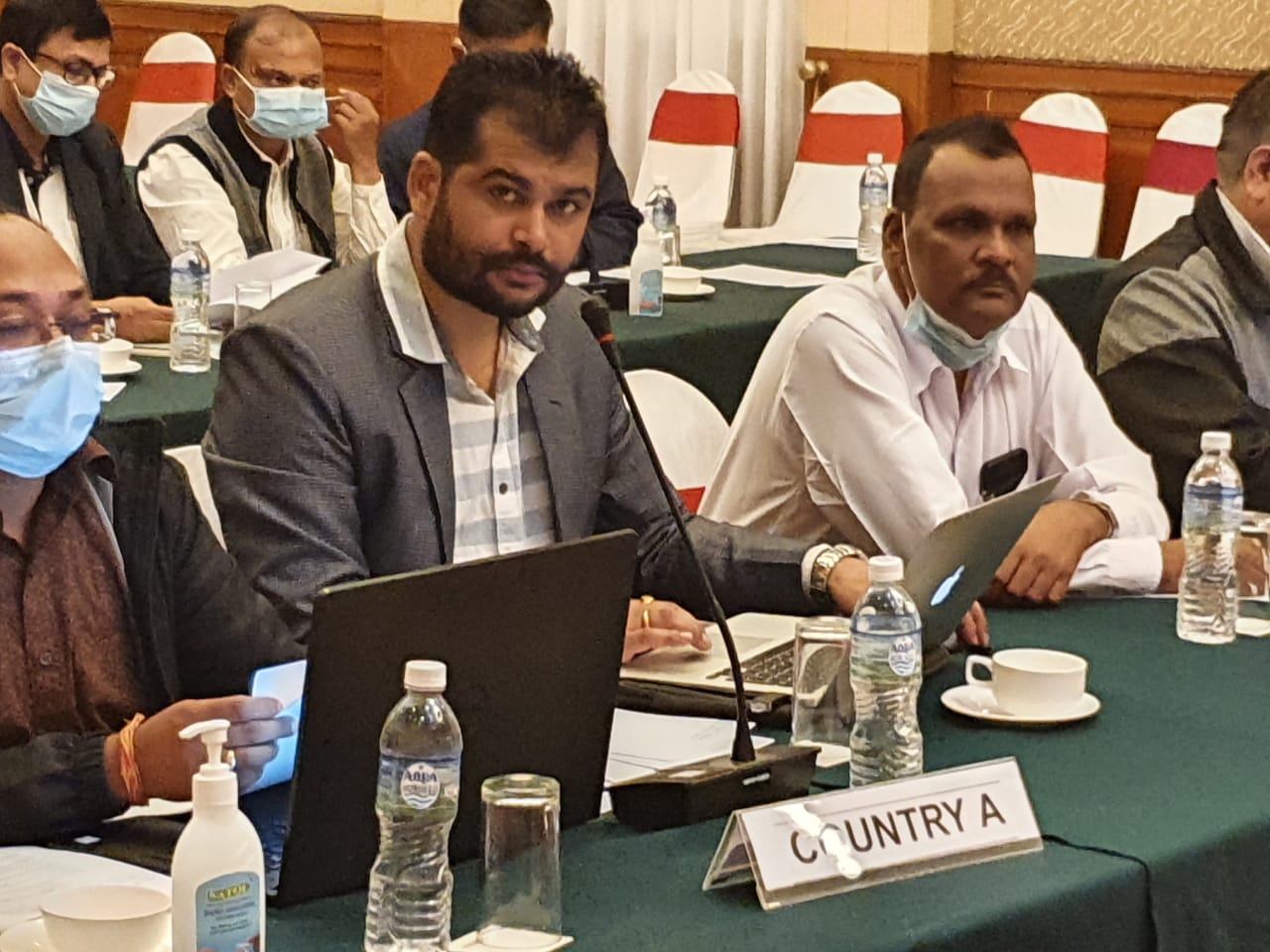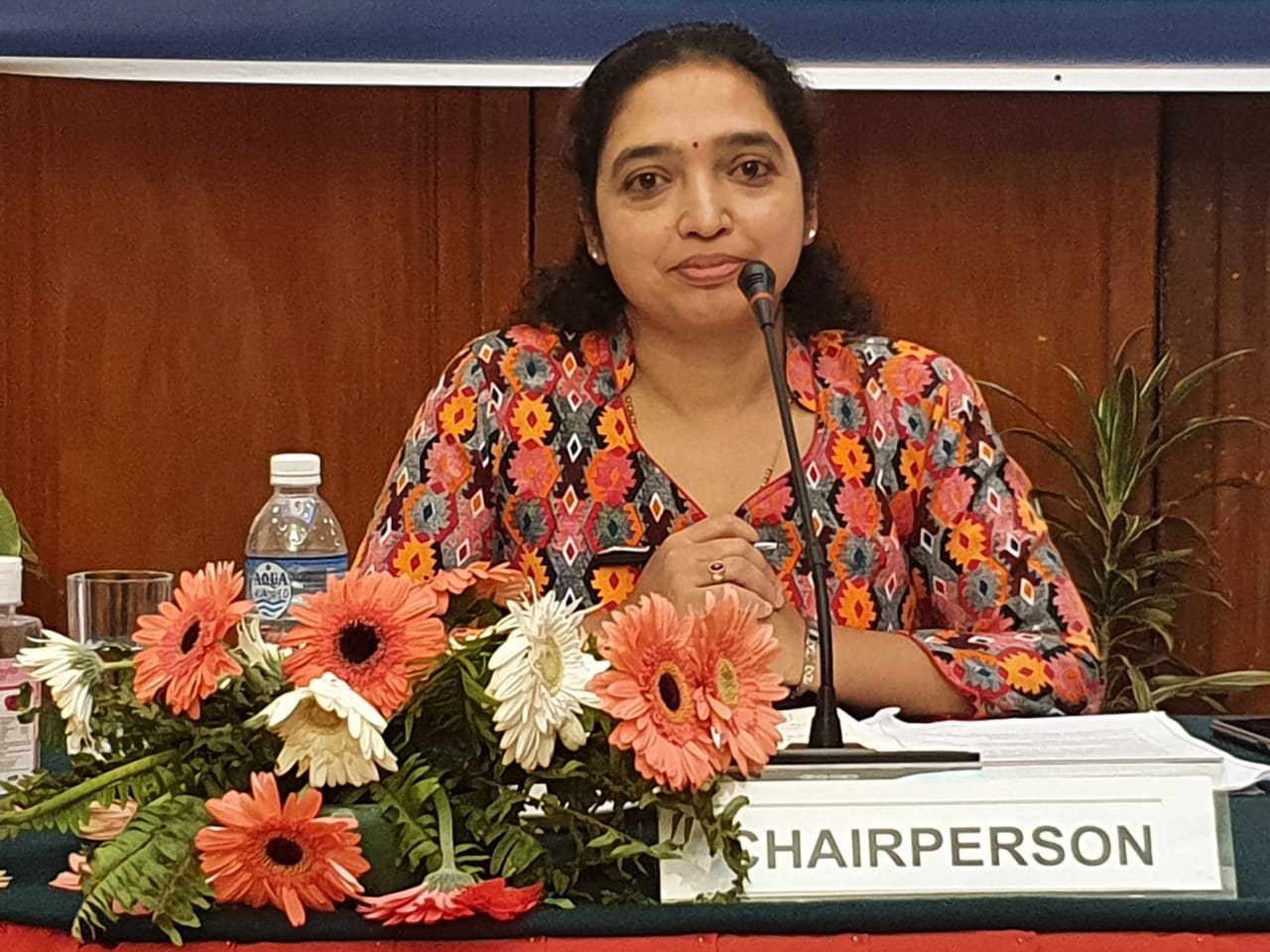Codex Trust Fund / workshop in Nepal trains future food safety officials
By Gyanendra Gongal
Regional Advisor (Food safety)
WHO Regional Office for South East Asia
Bhutan, India and Nepal have been implementing a Codex Trust Fund (CTF) group project since 2019. One of the major challenges the project is addressing is limited technical knowledge and expertise to run a functional National Codex Committee and participate actively in the Codex standard setting process. Nepal has been facing challenges to meet requirements for the export of indigenous agri products such as ginger and cardamom. These advocacy and training workshops were particularly important as Nepal has embraced a federal system and there is a frequent transfer of policy makers and food safety officials.
The training workshop on Codex and food safety was organized in Nagarkot, Nepal from 24 to 26 August 2021 and was followed by a policy and advocacy meeting, quiz and mock-drill exercise (simulating a Codex Committee meeting) from 27 to 28 August in Kathmandu. The face-to-face interactive workshop was organized following Covid protocols and all participants had received a full course of Covid vaccinations.
The main objectives of the five-day intensive programme were to train a critical mass of officials from different agencies on Codex, to impart practical knowledge and experience through a mock-drill exercise and to identify priority follow up actions.

Simulation exercise during training
Since food safety is a shared responsibility, 26 participants from different ministries and line agencies working in food safety area were selected. The training was focused on the importance of Codex in setting national food standards, its impact on fair trade practice and consumer health protection, harmonization of food standards for import, export as well as domestic production and consumption. Hands-on sessions were organized to impart practical experience on the Codex online commenting system and to promote active participation in physical and electronic working groups. A pre-training evaluation was conducted where only four percent of participants scored 8 out of 10 whereas the post-training evaluation was amazing with 74 percent of the participants achieving the high eight score.

All woman team played key roles during the simulation exercise
Participants were extremely happy to work with Mr. Sanjay Dave, an encyclopedia of Codex and former chairperson of the Codex Alimentarius Commission, who spent hours with participants in informal discussions on Codex and food trade. Similarly, Mr. Perumal Karthikeyan from the Food Safety and Standard Authority of India provided practical training on the OCS and effective participation in physical and electronic working groups. The best part of this workshop was the mock-drill exercise to gain practical experience in effective participation in Codex Committee meetings. The Codex committee was run by an all-women team during the mock-drill exercise and they performed excellently according to Mr. Sanjay Dave. One participant commented that it was the best training workshop they had attended - despite the hectic schedule.
As so many participants demonstrated their ability and interest to actively participate in Codex Committee meetings during the mock-drill exercise, it is suggested countries create groups for the food commodities of national priority and work on developing country positions ahead of Codex meetings including new work proposals.
A series of Codex workshops under CTF have raised awareness at policy, professional and public levels. A Food safety and Quality Bill, which was on hold for many years, is now under consideration in the Nepalese parliament. Interaction with parliamentarians as a part of the CTF project in April 2021 was critical to explain Codex’s role in fair trade practice and consumer health protection which has been the basis for the formulation of the new bill.
Learn more
At the heart of the Codex mandate are the core values of collaboration, inclusiveness, consensus building and transparency. Governmental and non-governmental, public and private organizations alike play a vital role in ensuring Codex texts are of the highest quality and based on sound science.
Codex would have little authority in the field of international standard setting if it did not welcome and acknowledge the valuable contributions made by observers. Expert technical bodies, industry and consumer associations
contribute to the standard-setting process in a spirit of openness, collaboration and transparency.
Intergovernmental organizations (IGOs) and international non-governmental organizations (NGOs) can apply for observer status in Codex in order to attend and put forward their views at every stage of the standard-setting process.
 Current Codex Alimentarius Commission
Current Codex Alimentarius Commission
Codex Trust Fund / workshop in Nepal trains future food safety officials
By Gyanendra Gongal
Regional Advisor (Food safety)
WHO Regional Office for South East Asia
Bhutan, India and Nepal have been implementing a Codex Trust Fund (CTF) group project since 2019. One of the major challenges the project is addressing is limited technical knowledge and expertise to run a functional National Codex Committee and participate actively in the Codex standard setting process. Nepal has been facing challenges to meet requirements for the export of indigenous agri products such as ginger and cardamom. These advocacy and training workshops were particularly important as Nepal has embraced a federal system and there is a frequent transfer of policy makers and food safety officials.
The training workshop on Codex and food safety was organized in Nagarkot, Nepal from 24 to 26 August 2021 and was followed by a policy and advocacy meeting, quiz and mock-drill exercise (simulating a Codex Committee meeting) from 27 to 28 August in Kathmandu. The face-to-face interactive workshop was organized following Covid protocols and all participants had received a full course of Covid vaccinations.
The main objectives of the five-day intensive programme were to train a critical mass of officials from different agencies on Codex, to impart practical knowledge and experience through a mock-drill exercise and to identify priority follow up actions.

Simulation exercise during training
Since food safety is a shared responsibility, 26 participants from different ministries and line agencies working in food safety area were selected. The training was focused on the importance of Codex in setting national food standards, its impact on fair trade practice and consumer health protection, harmonization of food standards for import, export as well as domestic production and consumption. Hands-on sessions were organized to impart practical experience on the Codex online commenting system and to promote active participation in physical and electronic working groups. A pre-training evaluation was conducted where only four percent of participants scored 8 out of 10 whereas the post-training evaluation was amazing with 74 percent of the participants achieving the high eight score.

All woman team played key roles during the simulation exercise
Participants were extremely happy to work with Mr. Sanjay Dave, an encyclopedia of Codex and former chairperson of the Codex Alimentarius Commission, who spent hours with participants in informal discussions on Codex and food trade. Similarly, Mr. Perumal Karthikeyan from the Food Safety and Standard Authority of India provided practical training on the OCS and effective participation in physical and electronic working groups. The best part of this workshop was the mock-drill exercise to gain practical experience in effective participation in Codex Committee meetings. The Codex committee was run by an all-women team during the mock-drill exercise and they performed excellently according to Mr. Sanjay Dave. One participant commented that it was the best training workshop they had attended - despite the hectic schedule.
As so many participants demonstrated their ability and interest to actively participate in Codex Committee meetings during the mock-drill exercise, it is suggested countries create groups for the food commodities of national priority and work on developing country positions ahead of Codex meetings including new work proposals.
A series of Codex workshops under CTF have raised awareness at policy, professional and public levels. A Food safety and Quality Bill, which was on hold for many years, is now under consideration in the Nepalese parliament. Interaction with parliamentarians as a part of the CTF project in April 2021 was critical to explain Codex’s role in fair trade practice and consumer health protection which has been the basis for the formulation of the new bill.
Learn more
 Codex and Observer
Codex and Observer
around the world since ancient times.
We might not always know where it comes from,
but we expect it to be available, safe and of good quality.









Leave a comment